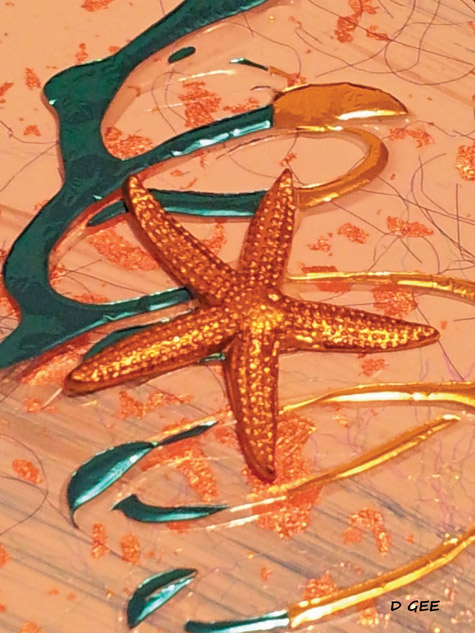The origin of phrases is a fascinating, mysterious and rather weird journey into the foggy annals of human history. The detective work can be dizzying and cryptic and gives new meaning to the phrase “Truth is stranger than fiction.” By the way, that phrase originated in Byron’s Don Juan from 1823: “Tis strange – but true; for truth is always strange; stranger than fiction.” Sometimes the research for this blog was “All Greek to me” – which is credited to Julius Caesar by Shakespeare (1599) .Casca expresses exasperation at not understanding Cicero: “For mine own part, it was Greek to me.” Anyway, at the end of this blog, I hope that my readers will still think that my article is “The bees’ knees” and leave some comments. FYI, that phrase came into use in early 19th Century America as a nonsense term denoting something that was extra cool and hip. Do you think that the Seaside Times is “The snake`s hips” or “The monkey`s eyebrows”?
Maybe I am “Grasping at straws”, trying to find out the obscure roots of everyday quips. Now that I mention it, those words evolved from a sixteenth century proverb, “A drowning man will clutch at a straw.” Long ago, I realized that constant frustration is “Part and parcel” of being a serious writer. We can blame lawyers for that quizzical phrase! Historically, legal professionals have sought to protect themselves from misinterpretation by repeating the same idea two different ways within one sentence. “Parcel” originally meant ‘a small part.’ The legal meaning extending from the sixteenth century is ‘Part and a smaller part of that’ which grew to mean ‘all of the parts.’
Only a “Mad hatter” would tackle this writing challenge. Let me guess: Alice in Wonderland? Anyway, fame and fortune have never come my way and the Pulitzer Prize is for suckers. Sorry, just a tad of “Sour grapes” dear readers. Speaking of which, Aesop gave us this colourful turn of words. In his fable, The Fox and the Grapes, the poor fox cannot reach those luscious fruits at the top of the vine so he declares them to be so sour and foul-tasting that he is better off without them.
Anyway, complaining about my dashed dreams is a bit of a “Red herring” to keep my mind off the real problem: No will power to finish that novel. Many theories abound regarding that peculiar term. Michael Quinion provides the most plausible explanation in ‘ WorldWideWords.org’: On February 14,1807 the journalist, William Cobbett, wrote about himself as a boy trying to deflect dogs off the trail of a hare with a red herring. He meant it as a metaphor to slam the British government for being misled by false information that took its attention away from urgent domestic problems.
Phew. It is “Seventh heaven” to finally finish this blog, go grab a beer and watch TV. The concept of a many-layered heaven originated in the ancient world. One historical interpretation proposes that there are seven spheres around the earth. The “Seventh heaven” is the highest plane, a place of eternal ecstasy.
I am waiting with “Bated breath” for our readers’ comments after this piece is posted. It is truly fascinating how our present-day lingo still uses archaic terms from times long past. Shakespeare’s passionate words from the Merchant of Venice (1596 – 8), “With bated breath and whisp’ ring humbleness”, uses a short form of ‘abated’, meaning reduced. And we still use that cropped form today.
Tell me some of your favourite clichés and your thoughts on their origins. Come on. “Strut your stuff!” Anybody know where that comes from?
Source Material : The Cat`s Pyjamas – The Penguin Book of Classics by Julia Cresswell.
By Doreen Marion Gee



